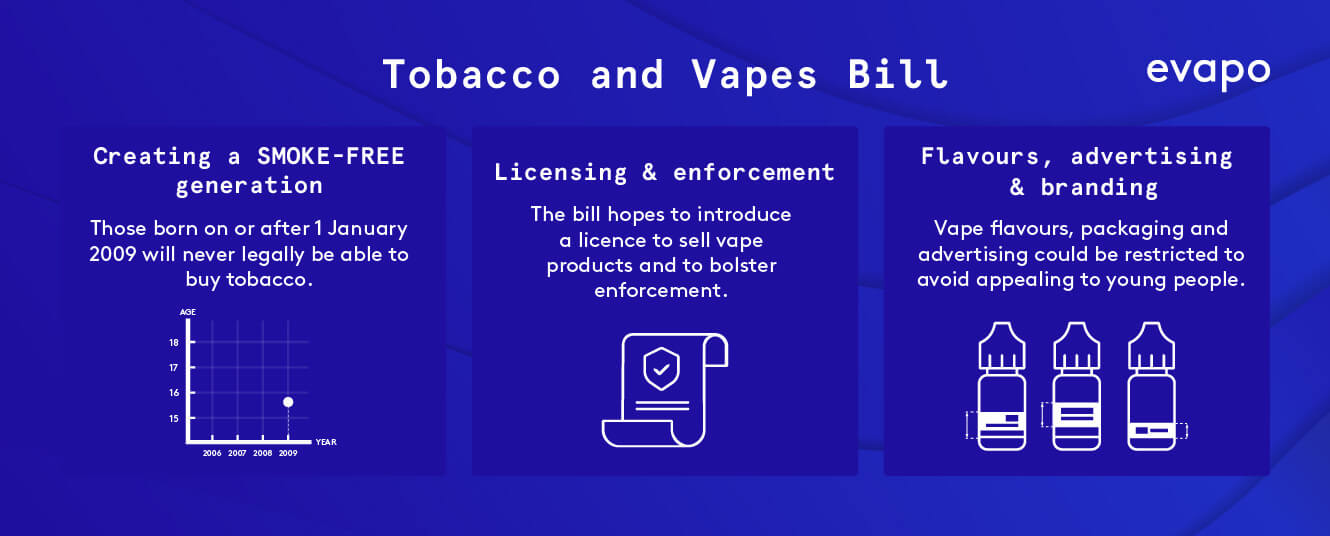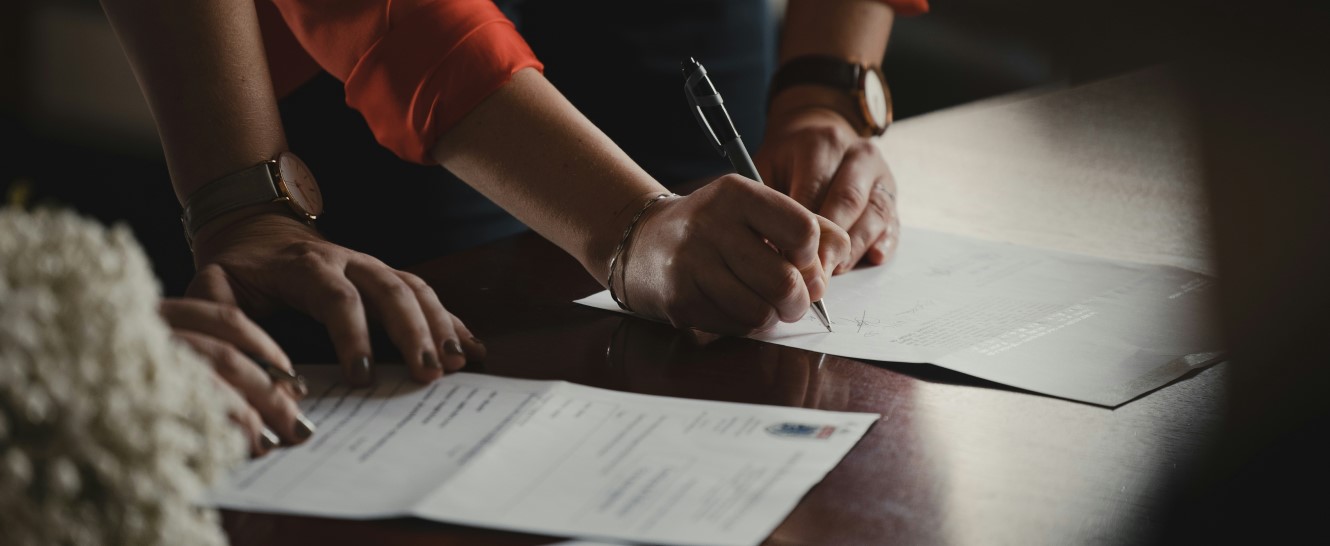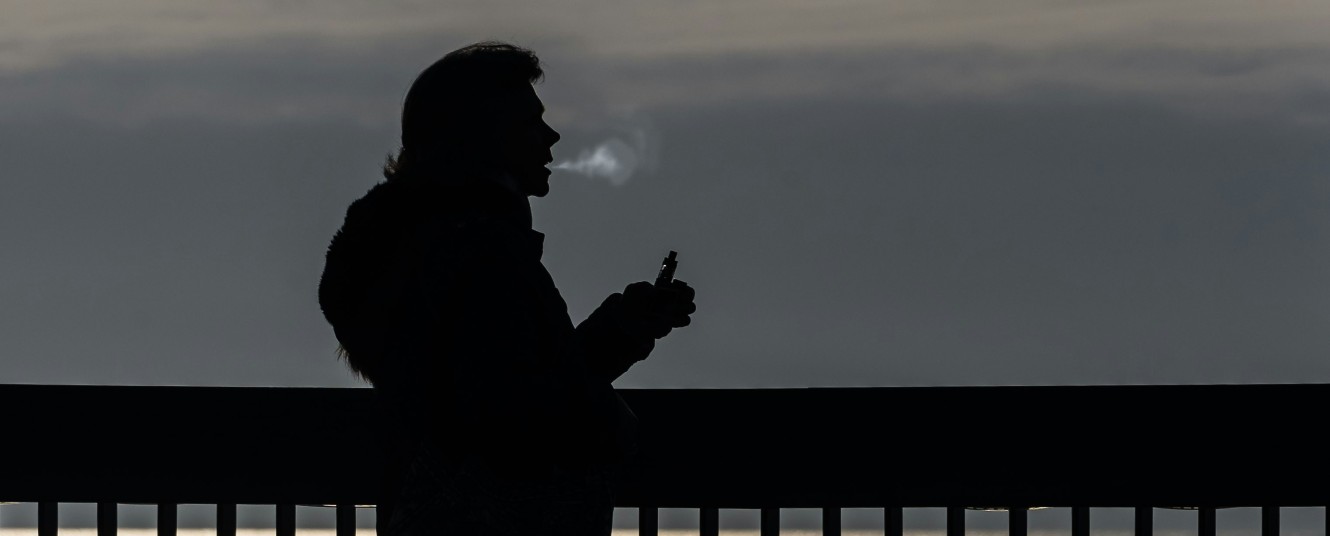Following the Government’s call for evidence on youth vaping many in the vaping industry have called for the introduction of a vape licensing scheme, ourselves included. In fact, we recently wrote to the committee on the Tobacco and Vapes Bill urging them to consider the introduction of a licensing scheme.
In this post we are going to take a closer look at what a vape licensing scheme would entail and the likelihood of one being introduced in the UK.
What is a vape licensing scheme?
The UK Vape Industry Association (UKVIA) sums up the essence of a vape licensing scheme well, explaining it to mean ‘a licensing or approved retailer and distributor scheme whereby vape retailers (both online and in-store) and distributors on the scheme would pay a fee, adhere to strong age verification practices and commit that products they sell are both notified with the Medicines and Healthcare products Regulatory Agency (MHRA) and compliant with Classification, Labelling and Packaging (CLP) Regulation.’
It would work in a similar way to an alcohol licence, whereby a retailer will need to be licensed in order to sell vaping products, which could help to ensure they are being sold by responsible retailers who are committed to upholding the terms of the licence.
Action on Smoking and Health (ASH) published their response to the Government’s open consultation ‘Creating a smokefree generation and tackling youth vaping’, which included support for a licensing or registration scheme on both tobacco and vaping products.
A member of UKVIA has created a framework for a retail and distributor licensing scheme, which has been presented at the Houses of Parliament, laying out what a vape licensing scheme would and should look like. Andrej Kuttruf, CEO of Evapo, was involved in the development of this framework, and it is something we have been advocating for over the last couple of years.
This framework is the result of extensive research and development, including looking at the structure and implementation of similar existing schemes like the UK’s alcohol licensing scheme, New Zealand’s Specialist Vape Retailer scheme, and Scotland’s Register of Tobacco and Nicotine Vapour Product Retailers.
Dan Marchant, co-founder of the UKVIA, explained the need for such a scheme, saying:
“It doesn’t matter what legislation the Government introduces, whether the newly announced ban on disposables or any future restrictions, a robust and balanced licensing system is critical to ensuring the law can actually be enforced and for ushering in a new era of responsibility, accountability and best practice.
"The scheme we are proposing is not only self-funding but would be relatively quick and easy to implement and could generate upwards of £50 million in annual funding from retailers alone – this could, in part, be used as a sustainable funding base for enforcement.
"We don’t allow businesses to sell alcohol, surgeons to operate or drivers to get behind the wheel without a licence – why should the sale and supply of vaping products be any different?”
Who could apply for a licence?
As the main aim of the vaping industry is to ensure that vaping products are accessible to adult vapers and smokers, it would be important that the option to apply for a licence is available to all retail categories, such as supermarkets, convenience stores, online retailers, off licences, and specialist vape shops. However, the framework does include circumstances that would automatically prevent a business from being granted a licence. These include:
- If the business primarily sells products aimed at children, such as confectionery and toys, however, this would not include locations like supermarkets and convenience stores where these products are stocked amongst a range of other products categories like groceries, alcohol, and tobacco
- If the business has previously been found to be selling vaping products without a licence
- If the business is reapplying within two years of having its licence revoked
- If the business has previously received an official warning, fine, or prosecution for selling age restricted products to minors
- If the primary function of the business is not retail, which would include takeaway restaurants, hairdressers, barbers, taxi drivers/ranks, cinemas and theatres, and also short-term and seasonal events like fairgrounds and carnivals
- If the business is using an ecommerce website or online marketplace that does not allow the sale of vaping or nicotine products
Licence fees
The framework sets out a fee structure with four bands, similar to that of the alcohol licensing scheme in the UK, which ensures that the licence is charged on a premises-by-premises basis determined by the size of the business. This ensures that the scheme does not discriminate against smaller, independent businesses. This banded scheme is also made more straightforward by the fact that many of the locations likely to require a licence will have already been rated for an alcohol licence, such as supermarkets, convenience stores, and off licences.
The suggested pricing for the licence indicates a lowest band price of £750 and a highest band price of £1,000. The funds raised by the fees aim to be substantial enough to help fund the administration and enforcement of the licensing scheme.
Estimates from the UKVIA framework suggest that, based only on the number of specialist vape shops, convenience stores, and supermarkets currently within the UK, the scheme could generate £43,530,000 annually, and when all factors are considered could easily raise £50 million annually. This is substantially more than the £30 million additional funds that the Government have announced they would be providing to enforcement agencies like Border Patrol and Trading Standards to tackle youth access and illicit vape products.
Requirements for licence holders
The UKVIA framework not only lays out requirements for the licence holder once they have the licence, but also ones that should be undertaken as part of the application process. For example, they suggest providing educational information on topics like the Challenge 25 procedure, basic vaping product knowledge, and vaping laws and product requirements, and that the applicant also complete a test on this knowledge. They must also demonstrate that the appropriate measures are in action at their business to prevent the sale of vaping products to minors.
Once the licence has been issued, retailers would be required to comply with certain requirements as a licence holder, these include:
- Utilising Challenge 25 procedures in store and ensuring a robust age verification process is in place for online retailers
- Ensuring staff who are themselves under the legal age to purchase vaping products are not permitted to sell them
- Ensuring all staff are appropriately trained on age verification and identifying potential proxy sales, this is when an adult is suspected of purchasing on behalf of a minor
- Recording all denied sales, both underage and proxy sales, in a ‘refusal register’
- Ensuring that displays, promotional materials, and decorations are not youth appealing or featuring characters and imager which is appealing to minors, and align with advertising standards
- Displaying and training staff on the correct way to recycle vaping products, and providing in-store recycling points for customer to dispose of used products
- Only stocking products which are approved on the MHRA ‘notified products list, and are fully compliant with TPD and TRPR regulations
Penalties and enforcement
A big part of the licensing scheme laid out in the UKVIA framework is how it will be enforced and the penalties that come with lack of compliance.
One of the aims of such a scheme is to make it easier for enforcement agencies like Trading Standards to enforce the law and to crack down on illegal sales and illicit products. By becoming a licence holder a business is agreeing to regular checks and test purchases to ensure full compliance with the requirements of the licensing scheme, and acknowledging that non-compliance will result in significant fines and even licence revocation.
The framework establishes parameters for the severity of the penalty, based on culpability and harm, to ensure that the penalty appropriately reflects the severity of the breach. These three categories are as follows:
- Category 1 – higher culpability and greater harm – examples of this would be that an underage sale occurs due to insufficient age verification measures, like undertrained staff, or for an online retailer who has not implemented effective age verification measures at the point of purchase. The minimum fine amount for this would be £2,500.
- Category 2 – higher culpability and lesser harm, or lower culpability and greater harm – an example of this is that a sale is made to a minor even though the relevant procedures are in place and staff have received sufficient training. The minimum fine amount for this would be £1,000.
- Category 3 – Lower culpability and lesser harm – an example of this is failure to keep up-to-date records of denied purchases for underage sales or proxy sales. The minimum fine amount for this would be £500.
The penalty structure allows for up to four offences, with the second offence resulting the fine amount doubling, the third offence resulting in the fine amount tripling, and the fourth offence resulting in a flat find of £10,000 and licence revocation.
Licence revocation would be issued on a premises-by-premises basis, for example if the retailer has 10 stores, the remaining 9 would not be affected. If a licence is revoked the holder will not be permitted to reapply for a new licence for a minimum of two years and will need to make it clear on any new application that their previous licence was revoked. Retailers who have had their licence revoked twice would not be allowed to reapply.
They also include the suggestion of a £10,000 fine for any business found to be selling vapes without a licence, and that any relevant stock be seized to prevent further sales. As licence holders would be required to display proof of certification and would be named on a register it would be easy for local enforcement to identify those who are not licensed to sell vaping products.
Proposed licensing scheme could generate £50 million to support enforcement agencies
As part of the Tobacco and Vapes Bill, the government are considering introducing a vape licensing scheme that has the potential to generate £50 million annually, through the proposed £750 yearly license fee. This revenue could support enforcement agencies in carrying out measures like bi-annual mystery shops on licensed retailers, and cracking down on unlicensed retailers.
The focus of the most recent committee debate for the bill was on tackling underage vaping, holding retailers accountable, and cracking down on illicit products. In the debate, shadow health minister Sarah Bool MP supported evidence provided to the committee by Evapo, stating:
“A manageable fee for retailers would incentivise good actor participation, while disincentivising bad actor behaviour. It would also make it more cost effective to follow the law, stymieing rogue traders from shrugging off rare fines to sell illegal, dangerous products to underage people.”
Evapo were the only specialist vape retailer to contribute evidence to the Tobacco and Vapes Bill committee, encouraging them to consider a vape licensing scheme as a way to not only generate revenue for enforcement agencies, but a way to enforce higher standards and ensure effective legislation.
One of the suggestions made by Evapo was that those caught selling to minors should receive substantial on the spot fines of £2,000, as opposed to the £200 current fine. Andrej Kuttruf, XEO of Evapo, commented:
“Rogue traders should think twice before they break the law, and the best approach for that would be to raise the potential costs of criminality.”
Commenting on the fines currently in place for those caught flouting the law, Councillor David Fothergill commented:
“If you pay [the fine] within 10 days, it goes from £200 to £100. If you sell 40 vapes in one day, you have paid your fine. Some retailers—very few, because the vast majority are scrupulous—will take the view that they could sell more vapes to under-age people and those they should not be selling to, and pay that £100 fine within 10 days. So yes, we view it as too low. We would like to see a review brought in within a year to see whether it should be increased.”
It has been reported that MPs have acknowledged the potential that the suggestion from Evapo poses for prevention of repeat violations, and are seriously considering the idea.

Is it the same as the MHRA licensing scheme?
The Medicines and Healthcare products Regulatory Agency is the authority responsible for regulating all nicotine-containing products, and they have developed a scheme that would allow e-cigarettes to be licensed as medicines. This is a completely different licence which already exists.
This scheme applies to refillable and reusable vape kits only, and requires the manufacturer to ensure the product is compliant with the UK Medical Device Regulations 2002 in addition to the usual regulations laid out by TRPR and TPD.
This process is expensive, timely, and difficult for manufacturers, and so there are currently no e-cigarettes which have been licensed as medical devices in the UK.
Why are we calling for a vape licensing scheme?
In recent years we have seen more and more retailers starting to stock vaping products, especially disposable vapes. From tanning salons to pizza shops, these locations realistically have no reason to be selling these products, but are instead cashing in on the opportunity to make money from what they see as a popular product.
Speaking on Labour MP Melanie Onn's claim that there are too many vape shops on the high street, Andrej Kuttruf stressed the need to recognise legitimate from illegitimate businesses, saying:
"We have to differentiate between the rogue traders who are in it for a quick buck, who sell illegal products and don’t care who they sell to, whether it’s a child or an adult, and the responsible part of the industry. There are many hardworking small businesses who want to do the right thing and who are passionate about helping smokers quit."
Unfortunately, many of these locations are not equipped to provide adult smokers with the information they may need to make the switch from smoking to vaping, and may also be more lax when it comes to age verification. While specialist vaping retailers are working to assist adult smokers in finding a stop smoking tool, and operating strict age verification policies, these rogue retailers are illegitimising their work by making it easier for underage people to access vaping products.
In a recent interview with SkyNews, Andrej explained:
“The problem we have is that the kids come to us, we send them away, and they go around the corner and they buy vapes from the mobile phone shop next to us. We then report these shops to trading standards and at best they might get a £26 fine, which is ridiculous.
This is what really needs to change, we need a licensing scheme to ensure that these vaping products are only being sold by specialist retailers, and we need drastic fines to really hurt the people who sell to kids.”
A vape licensing or registration scheme played a big role in Evapo’s response the Government’s call for evidence and open consultation on youth vaping, allowing us as a vaping retailer to share our view on how it could help to better regulate the sale of vaping products.
It is clear that the rise in underage vaping can be linked to the proliferation of sales in locations that have no reason to be selling this type of product. In fact, a test purchasing programme conducted by Trading Standards highlighted the problem when they used a group of under 18s to identify locations not following age verification. This programme not only found that many of these locations were willing to sell to minors, but also that many of the products sold did not comply with UK regulations and were not legal for sale in the UK. This could mean that the nicotine strength exceeded the 20 mg/ml maximum, they contained more than the allowed 2ml of nicotine-containing e-liquid, or just that the product had not been approved through the MHRA.
Of those locations tested, the biggest offenders were:
- Markets or car boot sales, where all 3 of the attempted purchases were successful and 100% of the products were non-compliant
- Discount shops, where 11 of the 21 attempted purchases were successful and 52% of the products were non-compliant
- Mobile phone shops, where 10 of the 20 attempted purchases were successful and 50% of the products were non-compliant
Not only do these actions break the law and fly in the face of legitimate retailers who are strictly adhering to age verification, but non-compliant products have likely not been subject to the necessary health and safety checks and could in fact be very dangerous.
A timeline of events
- 15 March 2021 – UKVIA publish their document ‘Tobacco and Related Products Regulations (TRPR): A Blueprint for Better Regulation’ in response to the Government’s open consultation on TRPR, which included calls for a licensing scheme for vaping products.
- 11 April 2023 – In the interest of identifying ways to reduce the appeal and availability of vaping products to young people, the Government issue their eight week ‘Youth vaping: call for evidence’ This received 441 responses from citizens and organisations, and many use this as a opportunity to advocate for a licensing scheme.
- 12 October 2023 – The ‘Creating a smokefree generation and tackling youth vaping’ consultation is open for responses from the general public. Again, this offers an opportunity to advocate for licensing scheme.
- 7 November 2023 - The intention to introduce a 'Tobacco and Vapes Bill' is announced in the King's Speech.
- 6 December 2023 – The consultation closes and the 28,000 responses are collated.
- 29 January 2024 – The full consultation outcome is published, outlining how the Government plans to move forward, and disregarding calls for a licensing scheme.
- 21 February 2024 - A UKVIA member published their framework for a retail and distributor licensing scheme, which has been presented at the Houses of Parliament.
- 5 November 2024 - The new Labour government introduced their version of the Tobacco and Vapes Bill to Parliament.
- 30 January 2025 - The Tobacco and Vapes Bill Committee concluded, and the Bill will pass back to the House of Commons.
- 26 November 2024 - The reworked Tobacco and Vapes Bill passed its second reading in Parliament.
- 27 March 2025 - The Tobacco and Vapes Bill progressed from the House of Commons to the House of Lords.
- 23 April 2025 - The Bill passed its second reading in the House of Lords and has moved on to the committee stage.
- 27 October 2025 - The Bill entered the committee stage.
- 24 February 2026 - The Tobacco & Vapes Bill will enter the report stage in the House of Lords.
Will the Government consider a vape licensing scheme?
Although such as scheme has been advocated for by many, the previous Tory Government had stated that they were not planning to pursue it, due to the ‘impacts and burden on businesses and local authorities’. On the contrary, many retailers are the ones calling for such a system and have proved willing to do the work needed to implement it. The UKVIA framework has also received support from the Chartered Trading Standards Institute.
As Kuttruf goes on to explain:
“We need regulation that protects minors without penalising adults seeking safer alternatives to smoking. A sensible, evidence-based licensing framework would achieve this balance.”
The new Labour Government have introduced a reworked version of the Tobacco and Vapes Bill which is currently making its way through Parliament. In this new bill they make it clear that they do plan to create a tobacco, vaping, and nicotine products license as a way to better regulate them and ensure that only trusted retailers are able to sell them. This is very much welcomed by the vaping industry who fully support the Government in their plans to introduce such a scheme.
In a recent BBC Look North interview Andrej explained:
"We welcome that the Government are looking to introduce a licensing scheme. We agree that not everyone should sell vaping products, who can sell these products should be controlled."
As the Tobacco & Vapes Bill continuous to progress through Parliament, we hope to hear more about the potential licensing scheme and how this could be implemented.
Sources
gov.uk 16/05/2023
ukvia.co.uk 2023
ukvia.co.uk 21/02/2024
gov.uk 14/12/2017
tradingstandards.uk 04/2022
gov.uk 25/03/2022
gov.uk 07/11/2023
gov.uk 12/02/2024
gov.uk 12/02/2024
gov.uk 30/01/2024
ash.org.uk 2023
ukvia.co.uk 05/2021
ukvia.co.uk 2023
theguardian.com 04/2024
























